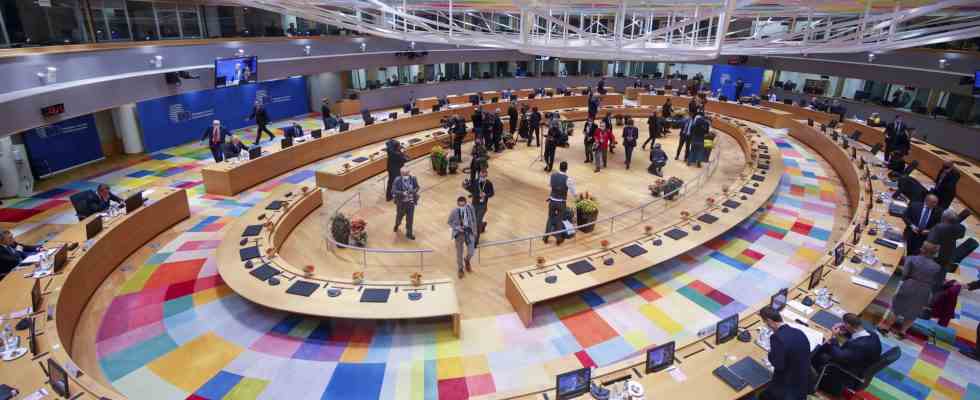Status: 03/23/2023 05:03
Electricity market reform, nuclear energy, munitions for Ukraine: there are numerous topics at the EU summit. The German blockade of the combustion engine off should also be discussed. An overview.
The EU heads of state and government are meeting in Brussels for the spring summit. At the beginning there should be an exchange with UN Secretary General António Guterres, then the Ukrainian President Volodymyr Zelenskyj should be connected via video. The agreed deliveries of ammunition to Ukraine will also be a topic at the summit, but there are disputes elsewhere: the German blockade of the combustion engine shutdown and nuclear power.
The argument about the combustion engine off
In fact, it was long overdue. First, the 27 EU member states had agreed among themselves, then also with the European Parliament. From 2035, only cars that no longer emit CO2 will be registered in the EU. At the urging of the FDP, the EU Commission was also asked to examine possibilities for the use of so-called e-fuels, i.e. synthetic fuels. And this is exactly where opinions differ.
Because for Transport Minister Volker Wissing it is clear that combustion engines can also be operated with climate-neutral e-fuels after 2035 – which not only the EU Commission sees completely differently. A compromise has been sought for days, but so far in vain.
In Brussels and other European capitals, people are astonished, annoyed or outraged at the last-second German blockade. After all, Germany had already agreed to the unification. And what if others soon come up with the idea of questioning negotiated agreements again?
Although the topic is not officially on the agenda, Chancellor Olaf Scholz should still be prepared for a few critical questions.
Armament aid to Ukraine
The Ukrainian army is running out of ammunition. So that the country can defend itself against the Russian attackers, the EU wants to ensure supplies and make one million artillery shells available over the next twelve months. They should be supplied from our own stocks and bought in bulk orders at the lowest possible prices. For example via the European Defense Agency, or, because that could go faster, via national sales contracts – that’s what the federal government is planning.
The EU wants to provide two billion euros from its peace fund for the procurement of ammunition. There is also talk of supporting the armaments industry in the EU in expanding its capacities – although this is not without controversy.
The reform of the European electricity markets
After the Russian attack on Ukraine, gas prices have not only gone through the roof, but so have electricity costs. Because the so-called merit order system ensures, to put it simply, that expensive gas-fired power plants are only used when they are really needed – but then set the price for the entire market. So also for electricity from solar or wind power plants, which would actually be significantly cheaper.
Many EU countries, especially in the south, would therefore prefer to end the coupling of electricity and gas prices. But the EU Commission does not want to go that far. There is no longer talk of a revolution; instead, long-term supply contracts should keep prices stable over the long term.
In addition, the Commission wants to allow the EU countries to promote the production of cheap energy more generously. Investments in green electricity, for example, but also in nuclear power. That is probably not enough for countries like Portugal or Spain. Others, such as Germany, Finland or the Netherlands, warn of the disadvantages and demand that the possible consequences of this reform be thoroughly examined first.
The trouble with nuclear energy
Again, the question is whether nuclear power is classified as clean and climate-friendly or not. With the so-called “Net Zero Industry Law”, the EU wants to make itself less dependent on suppliers from abroad, such as China, for important green technologies. Therefore, sustainable industries should be generously promoted with state money, also so that no companies migrate to the USA, where the government of President Joe Biden beckons with subsidies worth billions.
Eligible for support include clean hydrogen, CO2 storage, synthetic fuels and: mini-nuclear reactors – at the express request of France, which could imagine even more support for its nuclear plans. Germany and Austria, on the other hand, want to prevent nuclear energy from being considered green. However, this will not be decided at this summit.

